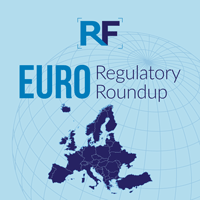Euro Roundup: MHRA contemplates a new regulatory framework for personalized medicines
 Biologics/ biosimilars/ vaccinesComplianceDiagnostics/IVDsEuropeMedical DevicesPharmaceuticalsProduct LifecycleQuality Assurance and ControlRegulatory Intelligence/Policy
Biologics/ biosimilars/ vaccinesComplianceDiagnostics/IVDsEuropeMedical DevicesPharmaceuticalsProduct LifecycleQuality Assurance and ControlRegulatory Intelligence/Policy